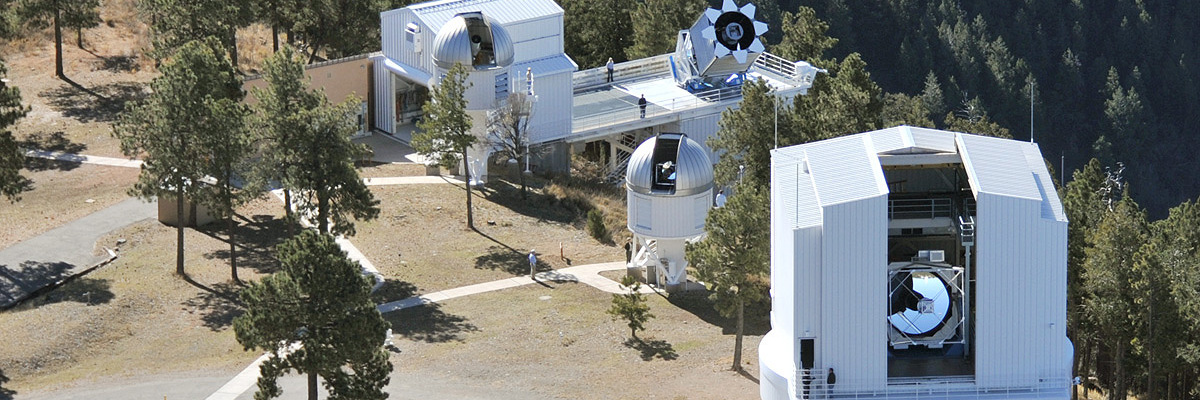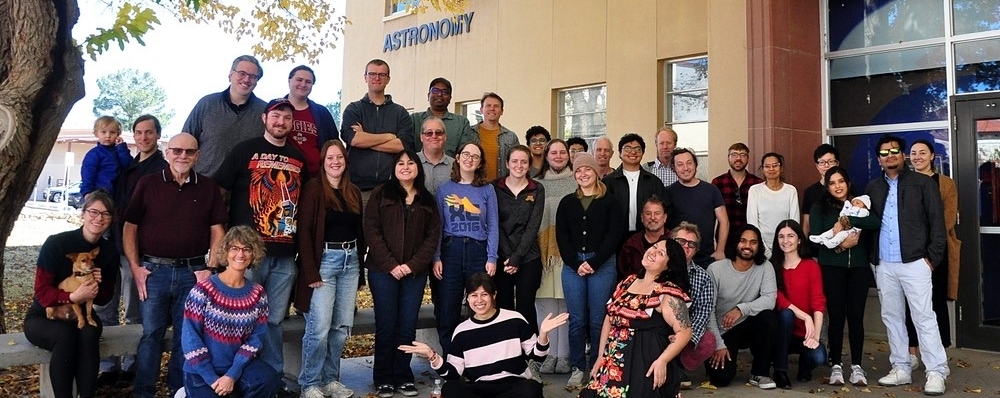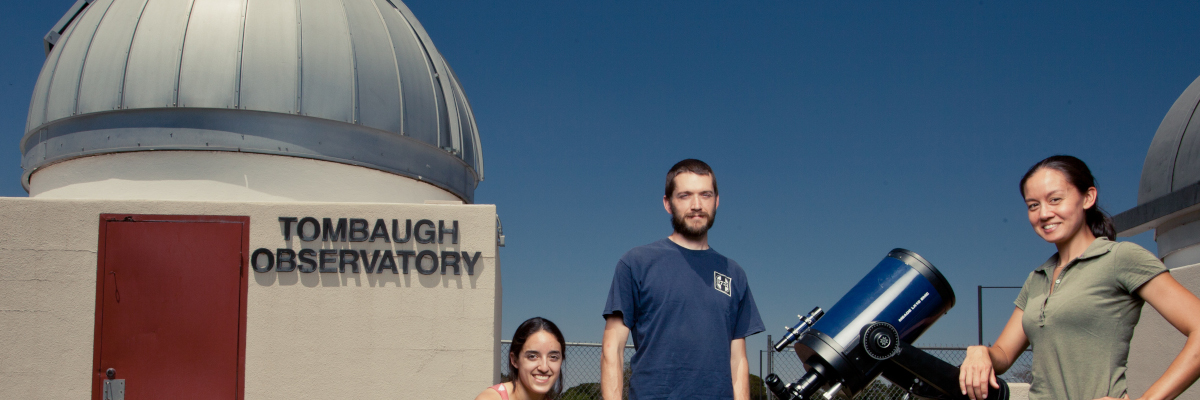Values Statement
The NMSU Department of Astronomy values a welcoming professional work environment, free from any and all discrimination and harassment, to all who are interested in learning about the Universe. We value a set of diverse perspectives and backgrounds in promoting this environment in all our undergraduate classes, graduate classes, and all professional work settings. As a member organization of the American Astronomical Society, our department strictly adheres to their Code of Ethics and we hold all our faculty, staff, graduate students, and undergraduate students to these high standards.
Welcome to the Department of Astronomy!
The NMSU Department of Astronomy strives to develop and communicate the human endeavor to understand the Universe. We accomplish this through continuing development of knowledge in our research program, as well as through our graduate and undergraduate course offerings. Our graduate program provides students the opportunity to become deeply involved in research, and educates students in skills that are useful for a variety of careers. Our undergraduate program educates students in critical thinking in the context of concepts in astronomy. The Department provides outreach to the community to spread knowledge and understanding.
The Department operates the Apache Point Observatory on behalf of the Astrophysical Research Consortium, as well as the Dunn Solar Telescope and Visitor Center at the Sunspot Solar Observatory. The Department also hosts the NASA Planetary Data System Atmosphere Node.
Please explore our site and learn about the exciting work we are doing. See our calendar for upcoming events and Department talks.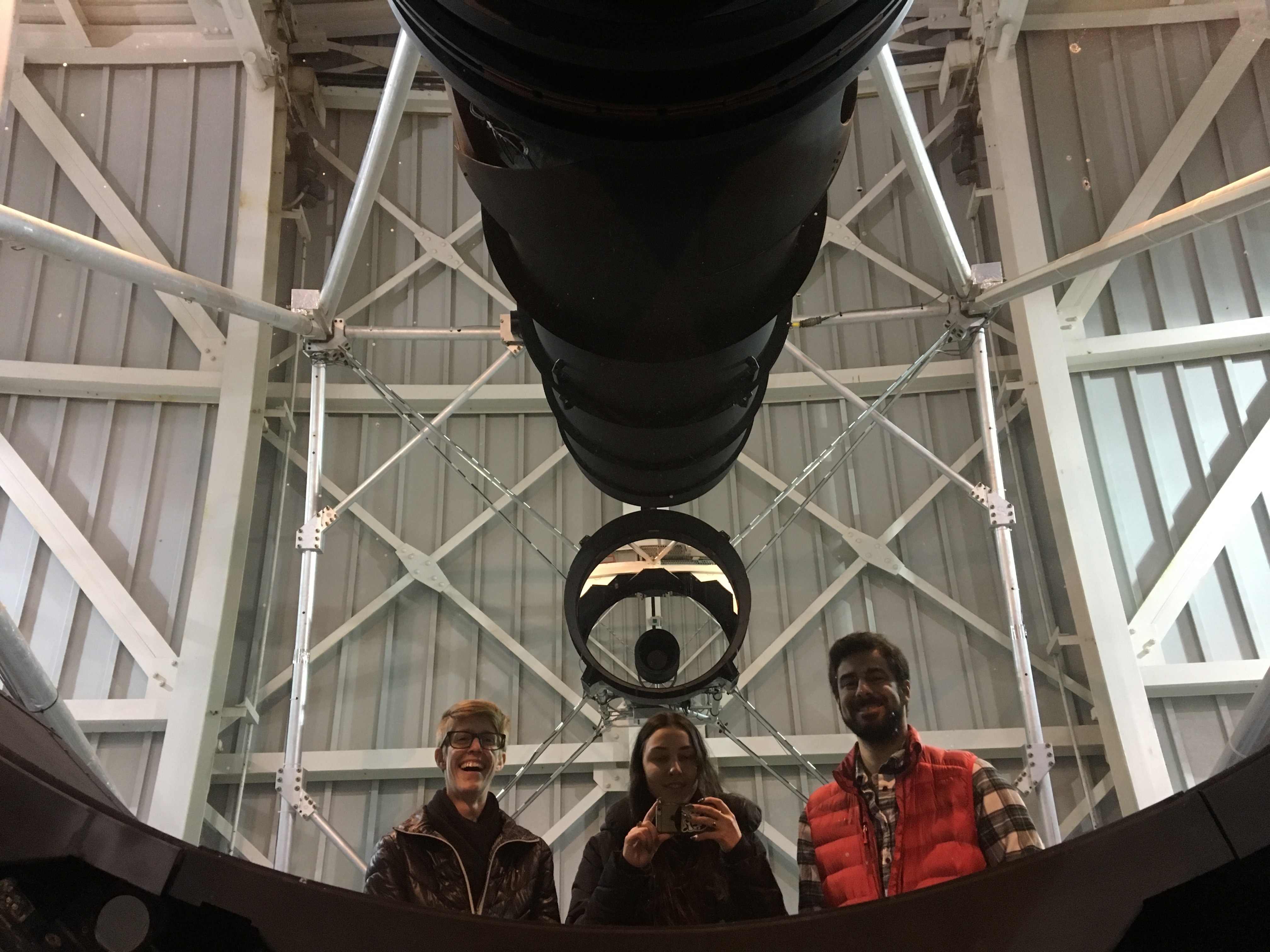
Graduate Program
The Astronomy Department at NMSU offers programs leading to the Master of Science and the Doctor of Philosophy degrees. Graduate courses cover topics in heliophysics, stellar atmospheres, observational techniques, the interstellar medium, galactic structure, stellar evolution, extragalactic objects, cosmology, exoplanets, and the solar system. Students are financially supported while pursuing their degree. The application deadline is December 15 each year!
Apply Now
We invite you to learn more about our department.
News Highlights

NMSU astronomers detect new laser reflector on moon with amazing precision
Imagine measuring the distance from Earth to an object on the moon within a space equal to the thickness of a single penny.
Read More
NMSU astronomy professor’s grant supports mixing art and science
New Mexico State University senior art major Kayla Blundell put her sculpture skills to the test, weaving together astronomy and artwork through a partnership with NMSU astronomy assistant professor Juie Shetye to create a vision of a total solar eclipse.
Read More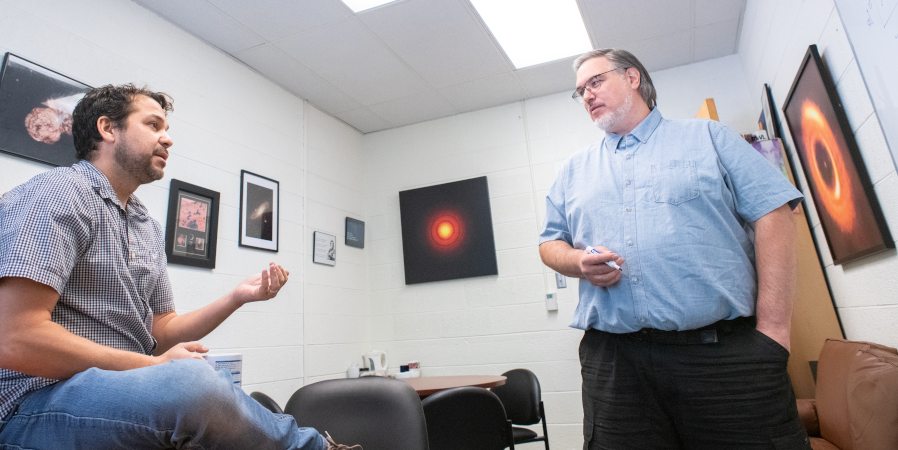
NMSU astronomer awarded two NASA grants
Carrera came to NMSU as a research assistant professor in the fall 2024 semester with two NASA grants adding up to about $1 million over the next four years.
Read More
NMSU astronomy research uses slime mold to model galaxies
A New Mexico State University graduate student used a slime mold model as part of his Ph.D. thesis to improve the way astronomers identify the largest scale structures in the universe, the “cosmic web.”
Read More
NMSU alum’s astronomy degree takes him beyond the stars
Manny Canas earned a bachelor’s degree in astrophysics before choosing New Mexico State University in 2019 to pursue a master’s degree.
Read More